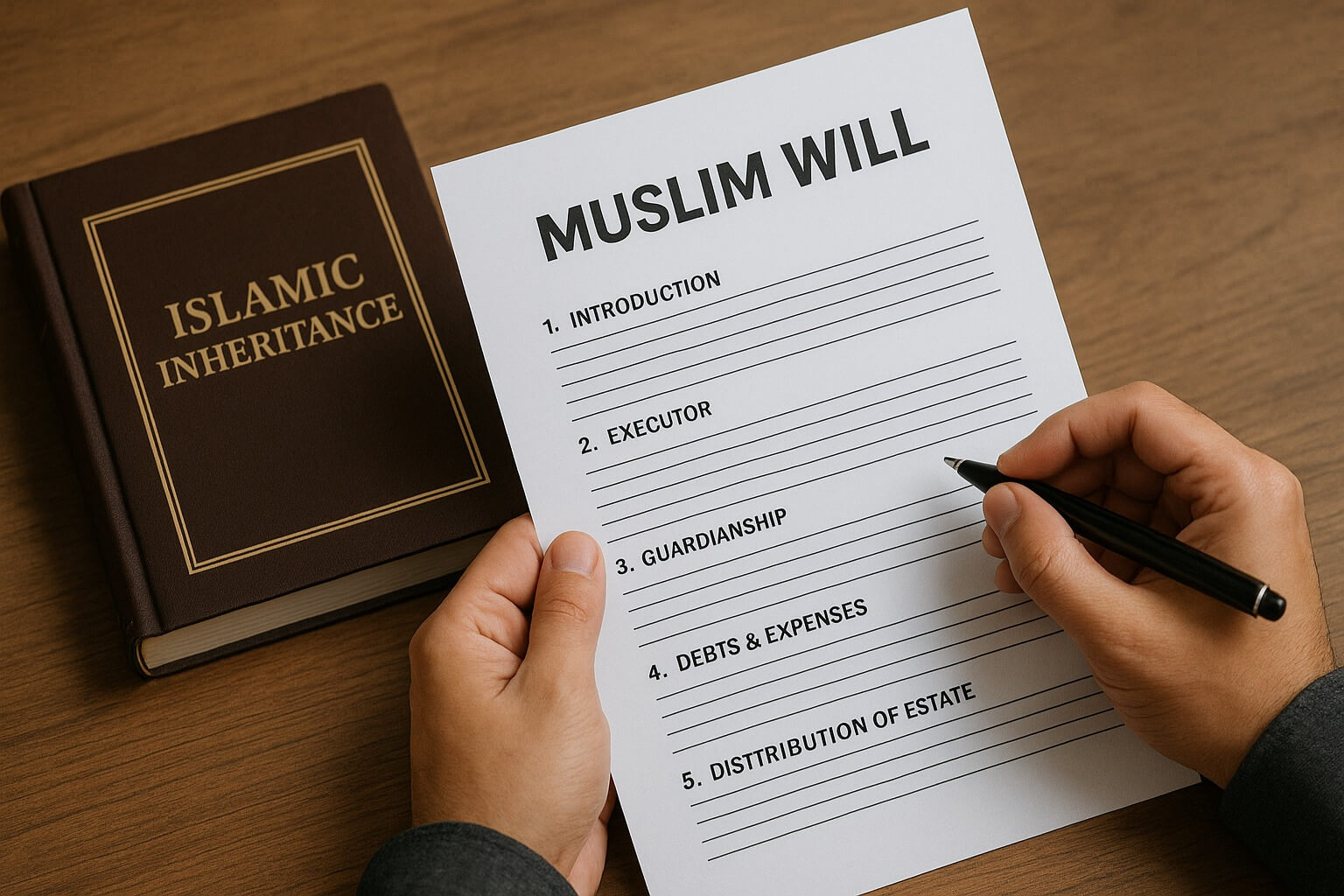Plan Your Islamic Inheritance with Confidence
Ensure your assets are distributed fairly and in accordance with Islamic principles — with IRB Law’s trusted legal experts by your side.

What is Wasiat?
A Wasiat is a written Islamic will that allows a Muslim to distribute up to one-third of their estate to non-Faraid beneficiaries or for charitable purposes, in accordance with Syariah principles. It becomes effective upon death.
Our Services
We provide comprehensive Islamic Estate Planning and Faraid Advisory services, covering key components such as Faraid, Hibah, and Wasiat, which work together to help Muslims manage and distribute their wealth in accordance with Shariah principles.
Wasiat Drafting
Legally valid and Syariah-compliant wills
Hibah (Lifetime Gifts)
Secure property or asset transfers outside of inheritance
Faraid Consultation
Understand rightful heirs and distribution shares
Letters of Administration & Probate
Fast, stress-free legal processing
Cross-border Estate Matters
Navigate overseas assets and international law
Why Choose Us
Why Having a Wasiat Matters
| With a Wasiat | Without a Wasiat |
|---|---|
|
Simplified & Faster Legal Process
A clear will ensures a smooth, structured process.
|
Complex and Lengthy Legal Procedures
Heirs face drawn-out court processes to unlock your estate.
|
|
You Choose Your Executor
Assign a trusted person to carry out your wishes.
|
Court-Appointed Administrator
Someone you didn’t choose may manage your assets.
|
|
Prevents Family Conflicts
Clear, written instructions reduce misunderstandings and disputes.
|
Higher Risk of Family Disputes
Lack of clear instructions can lead to internal conflict.
|
|
Timely Distribution of Assets
Beneficiaries gain quicker access to what’s rightfully theirs.
|
Delays in Accessing Inheritance
Your loved ones may wait months—or years—to receive what you intended for them.
|
|
Syariah-Compliant Estate Planning
Your assets are distributed according to Islamic law.
|
Possible Non-Syariah Distribution
Asset division may not align with Islamic principles.
|
Our Reviews
Our Lawyers
Frequently Asked Questions
Wasiat (Islamic Will)
What is a Wasiat?
A Wasiat is a written Islamic will that allows a Muslim to distribute up to one-third of their estate to non-Faraid beneficiaries or for charitable purposes, in accordance with Syariah principles. It becomes effective upon death.
Who can I name in my Wasiat?
You can name anyone who is not a Faraid heir, such as friends, foster children, or charitable organisations. It must not disadvantage the rightful Islamic heirs unless they voluntarily agree.
Is a Wasiat legally binding in Singapore?
Yes, if properly drafted and executed, a Wasiat can be recognised under Singapore law and admitted for probate. It is crucial to ensure it complies with both civil and Syariah legal frameworks.
Do I still need a Wasiat if Faraid applies automatically?
Yes. A Wasiat allows you to:
- Appoint a guardian for minor children
- Select an executor
- Make gifts up to one-third of your estate
- Express funeral wishes
Can I change my Wasiat later?
Yes. You may revoke or update your Wasiat at any time during your lifetime, provided you are of sound mind.
Hibah (Lifetime Gift)
What is a Hibah?
Hibah is an inter vivos gift, meaning it’s given during your lifetime. It can be used to transfer property or assets to a loved one outside the Faraid distribution.
Why choose Hibah over a Wasiat?
Hibah takes immediate effect, unlike a Wasiat which only applies upon death. It provides certainty and avoids potential disputes among heirs.
Is Hibah allowed in Singapore?
Yes. While Singapore law governs ownership and transfer mechanics, a properly documented Hibah agreement can be both legally and Islamically valid.
Can I use Hibah to give property to a specific child or spouse?
Yes. Hibah is commonly used to give property, CPF savings, or savings accounts to a specific recipient—especially if you want to provide for someone who may not inherit under Faraid.
Can I revoke a Hibah after giving it?
Generally, a Hibah is irrevocable once completed unless certain conditions were set. However, legal advice should be sought before execution.
Faraid (Islamic Inheritance Law)
What is Faraid?
Faraid is the Islamic law of inheritance, detailing fixed shares of a deceased Muslim’s estate among eligible heirs (e.g., spouse, children, parents).
Who determines the Faraid distribution?
The Syariah Court of Singapore certifies the rightful beneficiaries and their share percentages through an Inheritance Certificate.
Can I override Faraid with a will?
No. The mandatory portions of the estate must follow Faraid. You may only distribute up to one-third of your estate through a Wasiat to non-heirs.
What happens if I die without a will?
Your estate will be distributed entirely according to Faraid, based on the Inheritance Certificate and governed by the Probate and Administration Act in Singapore.
How is the estate administered after death?
Executors (or administrators if no will exists) apply for a Grant of Probate or Letters of Administration, lodge the Inheritance Certificate, settle debts, and distribute assets as per Faraid.
General Disclaimer
Syariah proceedings follow strict procedural rules and are not subject to judicial discretion. Case outcomes will depend on each individual’s specific circumstances. Please note that Syariah jurisdiction is limited; matters such as CPF funds and civil property division may require separate proceedings in the civil courts










